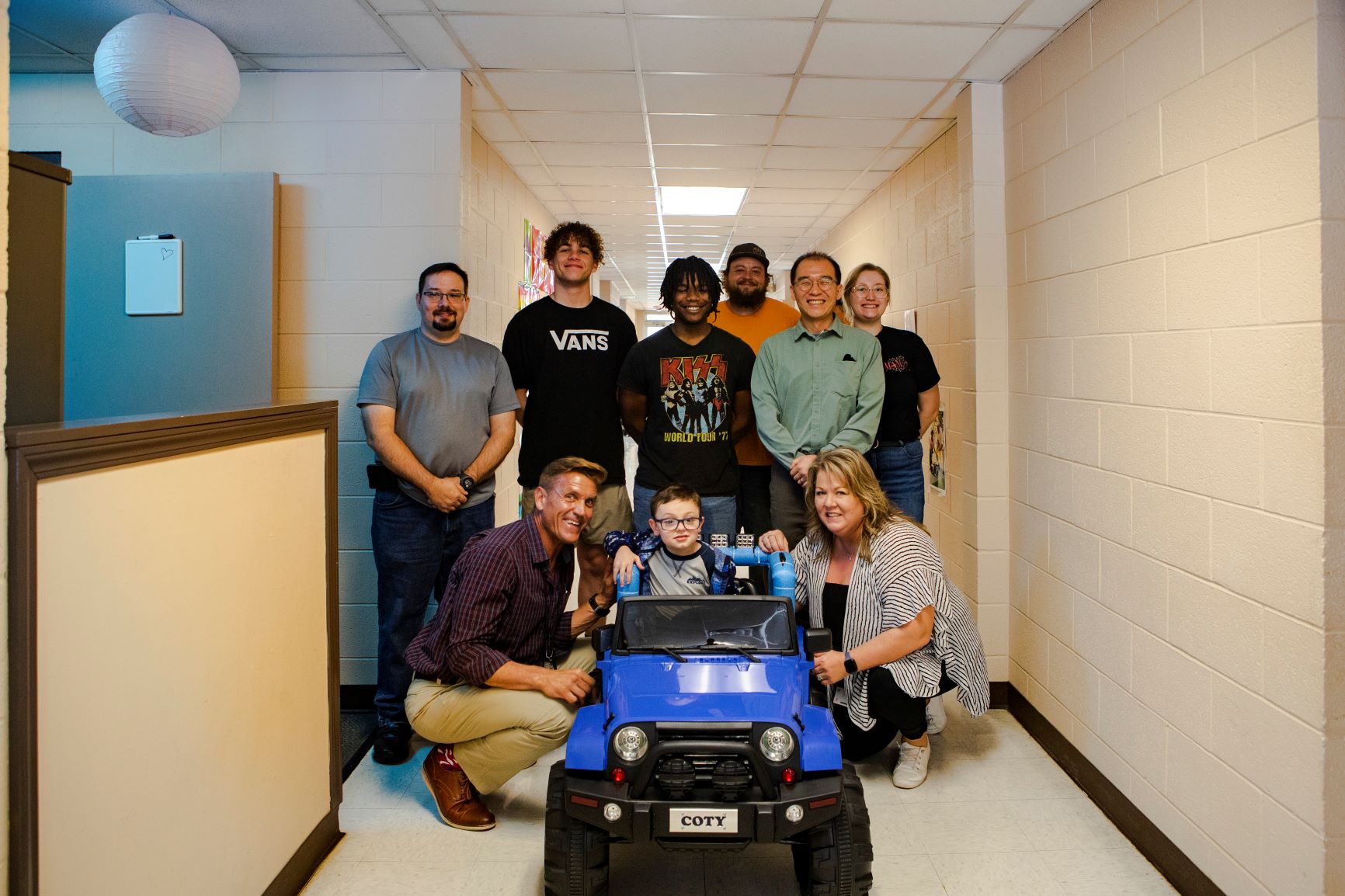
Dr. Kiyun Han and his students are happy to deliver the gift of independent mobility.
Go Baby Go: Students Learn the Value of Giving
Written By: Judith Hansen
Dr. Kiyun Han planned to combine “electrical and computer engineering with community engagement” to benefit children with limited mobility and teach his students a valuable lesson about living as citizens of the Earth.
When Han, associate professor and program lead in Electronics Technology and Electrical Engineering Technology, applied for an $8,000 mini-grant, he proposed introducing UAFS students to Go Baby Go, a program developed at the University of Delaware about 15 years ago.
Students modified the ride-on cars for young children so those unable to control their lower bodies would be able to propel themselves using a control on the steering wheel instead of the pedals. During the 2022-2023 academic year, Han and his students handed over the keys of the souped-up cars to one child at the Gregory Kistler Center and two at the Bost Child Development Center.
Trish Baumgartner, director of the Children’s Services Program at Bost, said the benefit to the children is “normalization.”
“The opportunity for children with specific disabilities to have customized jeeps specific to their needs is monumental,” she said. “That gives the child the ability to be like any other child who would have a toy jeep.”
In his proposal, Han developed that idea.
“Research has shown that independent mobility positively impacts motor, cognitive, language, and socio-emotional development,” Han noted. Being pushed in a stroller or carried from place to place is no substitute.
“Children who achieve self-directed mobility – whether on their own or using some kind of assistive device – can experience more social interactions, which will lead to better communication and social skills,” Han wrote.
The cars the students worked on have other modifications, too. Exposed plastic is wrapped in foam (think pool noodle) to protect the child drivers, some of whom may have involuntary upper body movements. At least one of the cars made in the last year has a five-point harness to help the child remain upright.
Baumgartner said one child is still learning to control the button. “However, the smile on her face when she is able to is priceless.”
The children who received the cars are not the only ones smiling.
When the customized cars were delivered to children at Bost, the smiles were universal: The children, their families, the center’s staff members, and the UAFS students were all joyful.
Learning that they could combine their professional skills with community service is vital to Han.
“It’s good for our students to learn to modify the electric circuit on the car; it helps them understand what they learn in their classes. But this is good community service, too,” Han said.
The students know they will apply the skills they learned at college when they go to work, but this is something more.
“Through this project, they learn we can contribute to the community. Their skills can be used for community service or other obligations,” Han said. “It can give them good motivation. It can give them a reason to continue to study this field.”
- Tags:
- Electrical Engineering Technology
- College of Business and Industry
Media Relations
The UAFS Office of Communications fields all media inquiries for the university. Email Rachel.Putman@uafs.edu for more information.
Send%20an%20EmailRachel Rodemann Putman
- Director of Strategic Communications
- 479-788-7132
- rachel.putman@uafs.edu
